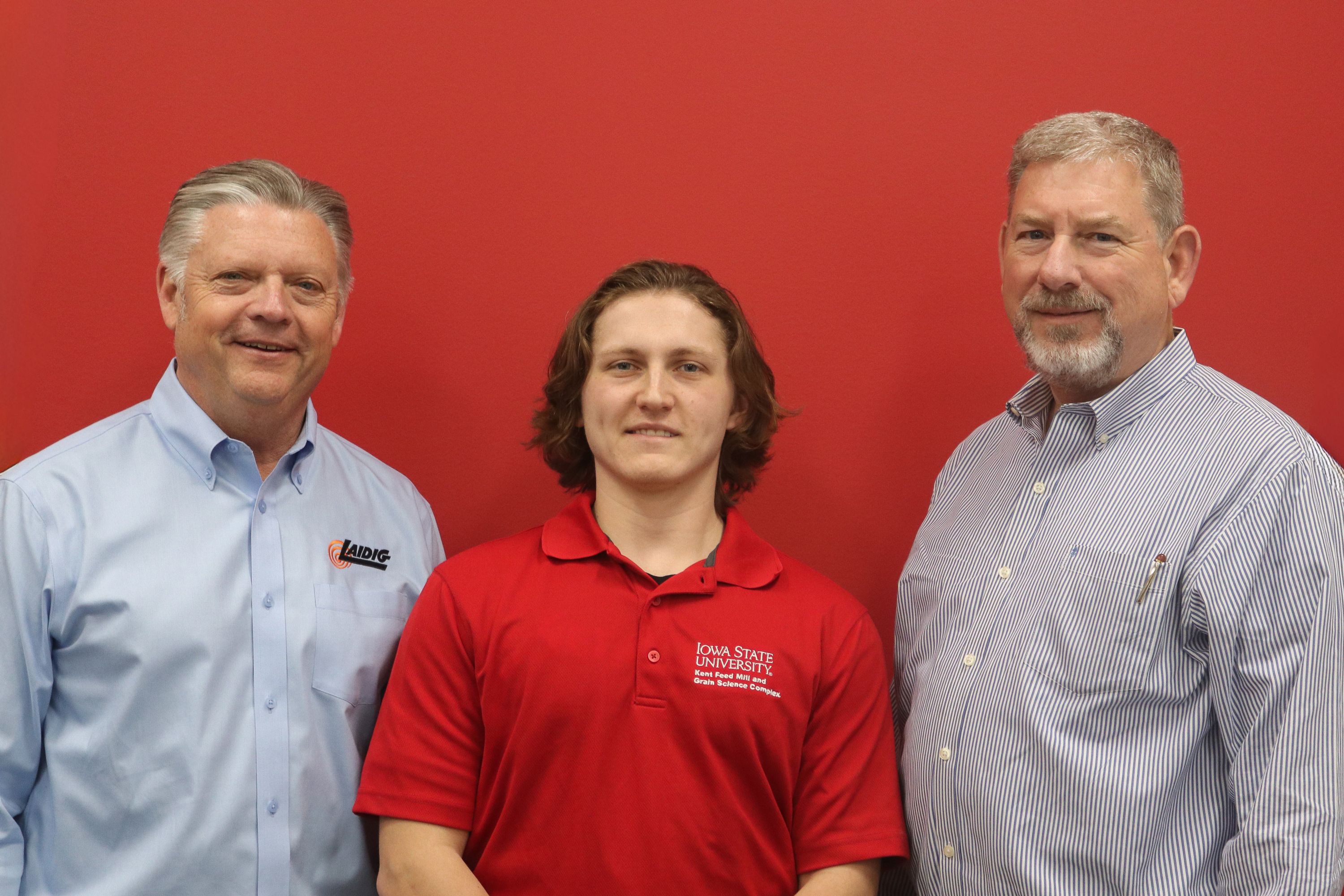Fostering the Next Generation of Feed Industry Professionals
Written by: Taylor Lekin | May 17, 2024
Last fall, Iowa State University unveiled the new ISU Kent Feed Mill and Grain Science Complex, which is dedicated to feed and grain research and education. After this facility's inauguration, ISU launched a traineeship program, providing students with invaluable, well-rounded industry experience. I recently had the opportunity to visit my alma mater to speak with Dirk Maier, Ph.D., the complex’s director, to learn more about this innovative approach to hands-on learning for the future of the feed industry.
As some may know, the Institute for Feed Education and Research (IFEEDER), in collaboration with the American Feed Industry Association (AFIA), is dedicated to fostering the long-term viability of the U.S. animal food industry workforce, through initiatives like the AFIA Equipment Manufacturers Committee (EMC) Scholarship Fund. This fund provides scholarships to students in programs that focus on feed science, technology or manufacturing at seven institutions, including ISU where students participate in a novel traineeship program.

employed at the ISU Kent Feed Mill and
Grain Science Complex and receiving funds
from the AFIA EMC Scholarship Fund.
Q: What motivated ISU to establish this traineeship for students?
Maier: The purpose of the traineeship is to provide students with the opportunity to gain
familiarity with the animal feed industry and its processes. We want to provide that opportunity to as many students as possible. In addition to the feed science and technology classes, where students are exposed to the content and work on projects within the facility, we want to be able to say, “Hey, if you want to come work here and gain real world practical experience, you can.”
Our goal is to hire students to work and learn in the facility who will benefit the most from this opportunity because they are interested in entering the feed industry, rather than just any student on campus who wants a job. That is how the traineeship program becomes a real investment in the future of the industry.
Q: In what ways does this traineeship align with ISU’s broader goals and commitment to education and research?
Maier: At our facility, our primary product is our students. The feed we produce is a means to achieve that. We all get excited about the work, the processes and running feed, but I like to remind everyone, including myself, that our focus is providing hands-on, relevant learning experiences for the students that they can take into their future careers. This is consistent with Iowa State’s commitment to science and practice–based learning and the College of Agriculture and Life Sciences commitment to their students.
Q: How is this traineeship different from the scholarship that has been offered in previous years?
Maier: With the traineeship, we can pay students to gain practical, real-life experience without selecting students based solely on academic performance [as with a scholarship]. We only have two requirements for students to join the traineeship program, that they are reliable and in good academic standing, and that they have expressed genuine interest in a future career in the feed industry. From there, we can match those students with the industry funds that align with the student’s specific interests.
.jpg)
Manufacturers Committee toured
the new ISU Kent Feed Mill and
Grain Science Complex where it
also held its Spring meeting.
Q: How does ISU foster connections between the traineeship recipients and industry professionals?
Maier: The traineeships are intended to be funded by the industry, whether it be from companies or organizations like IFEEDER and the EMC. There is a natural connection there, and because of that, we can provide students with an earlier connection to industry contacts or potential employers and vice versa. Through the traineeship, we get to know a lot about a student’s interest and future goals, and we do our best to match those students with sponsors that are a good fit. With that, the industry funding the traineeships can hire the students for internships or full-time positions, knowing that they are already familiar with the feed manufacturing processes and have hands-on experience through working at the state-of-the-art feed mill here at Iowa State.
Q: Are there plans for growth or enhancement of the program?
Maier: The program is a new idea at ISU and still evolving. However, financial sponsorships are annually renewable. Relevancy is key, so we are always looking at the interests of the students and utilizing their feedback to ensure they are getting a holistic experience with the specializations they are interested in. It is all about finding a good fit for the students.
The program is also always open for growth as companies or other entities, like IFEEDER and the AFIA EMC Scholarship, want to sponsor this experience for students. Our aim is to broaden the program's reach by encouraging more companies or organizations to sponsor individual students, rather than one entity sponsoring multiple students. This variety of sponsors from different sectors of the industry or different parts of the country helps us provide opportunities that match our students’ goals effectively.
--
The ISU traineeship program exemplifies a collaborative approach to preparing students for successful careers in the feed industry. By offering hands-on experience and fostering connections between students and industry professionals, Iowa State ensures that its graduates are well-equipped to enter careers in the industry.
As the program continues to evolve and expand, fueled by the support of organizations like IFEEDER and the AFIA EMC Scholarship Fund, we are excited to see how this program prepares the future leaders of our industry.